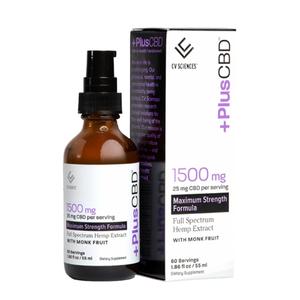 Expert's opinion
Expert's opinion
The article is a subjective view on this topic written by writers specializing in medical writing.
It may reflect on a personal journey surrounding struggles with an illness or medical condition, involve product comparisons, diet considerations, or other health-related opinions.
Although the view is entirely that of the writer, it is based on academic experiences and scientific research they have conducted; it is fact-checked by a team of degreed medical experts, and validated by sources attached to the article.
The numbers in parenthesis (1,2,3) will take you to clickable links to related scientific papers.
Best CBD Product For Skin Cancer: Benefits & Treatment In 2024
All articles are produced independently. When you click our links for purchasing products, we earn an affiliate commission. Learn more about how we earn revenue by reading our advertise disclaimer.
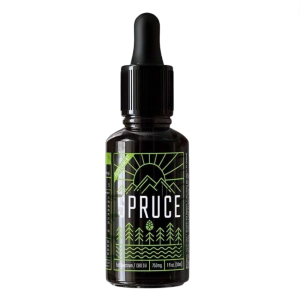
Spruce CBD
- Choose from 750mg or 2,400mg concentrations
- Made with 100% natural lab-grade CBD
- Subscribe and save 15% on monthly orders
15% Off Coupon: HEALTHCANAL
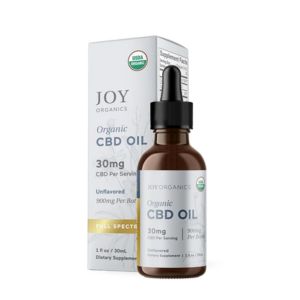
Joy Organics
- Choose from broad or full-spectrum recipes
- Available in several flavors (and unflavored)
- Free shipping and money-back guarantee
25% Off Coupon: HEALTHCANAL
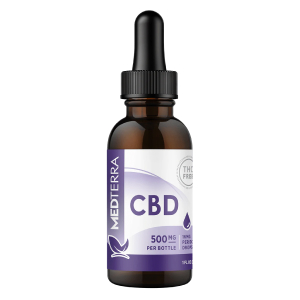
Medterra
- Wide variety of product choices available
- Made in the USA, organically grown
- Concentrations up to 3,000mg
15% Off Coupon: HEALTHCANAL
Few words are scarier than “cancer,” especially if your doctor is the one daying it. Even scarier than the word itself is that over 1.8 million people are diagnosed with this deadly disease in the United States each year and an estimated 600,000 people die from it annually.
Cancer can affect many different parts of the body, but skin cancer is one of the most common forms. The two most common types of skin cancer are basal cell carcinoma and squamous cell carcinoma. Melanoma, a less common form of skin cancer, is more dangerous than either and has doubled in incidence over the past two decades.
Skin cancer develops most frequently on skin exposed to the sun which is why UV protection is so important. Treatment varies by type and severity, and certain natural remedies like CBD oil have shown potential therapeutic benefits for symptom management.
In this article, we’ll explore the subject of skin cancer and the potential benefits of CBD oil as a treatment option. You’ll also see our top picks for the best CBD oil for skin cancer.
Best CBD For Skin Cancer On The Market In (April. 2024)
- Spruce CBD – Editor’s Choice
- Joy Organics – Top Broad Spectrum
- Medterra – Most Concentrated
- PlusCBD – Best Spray
- CBDPure – Top Organic
CBD Oil For Skin Cancer
Typical cancer treatments include excisional surgery, chemotherapy, and radiation therapy. Different forms of skin cancer respond better to some treatments than others, and the severity of the cancer may influence your oncologist’s recommendations. If you’re looking for a natural remedy to add to your treatment, either to counteract the effects of cancer treatment or to help manage symptoms, CBD oil may be something to consider.
Though cannabis has not been proven to cure cancer by any means, several clinical studies have yielded positive results. Treatment with cannabidiol oil has been shown to help alleviate nausea[1] and vomiting triggered by cancer treatments and the results of several limited studies suggest CBD may have anticancer properties which may slow the growth or spread of skin cancers.
Read on to learn more about hemp oil for skin cancer and to see our top picks.
Best CBD Product For Skin Cancer In 2024
Spruce CBD

15% Off Coupon: HEALTHCANAL
Different CBD products come in different concentrations but Spruce CBD offers a medium-strength and a high-strength option to keep things simple.
- Choose from 750mg or 2,400mg concentrations
- Made with 100% natural lab-grade CBD
- Subscribe and save 15% on monthly orders
- Limited variety of products
- Somewhat expensive compared to others
Though you may need to start using CBD at a low dose, once you’ve established your ideal dosage you’ll want a product that gives you the best bang for your buck. Spruce CBD offers high-quality cannabidiol oil tinctures in 750mg and 2,400mg concentrations.
These products are made with 100% natural lab-grade, full-spectrum CBD made in the USA. There’s no added flavor and no other ingredients aside from organic hemp seed oil as a carrier oil.
Joy Organics
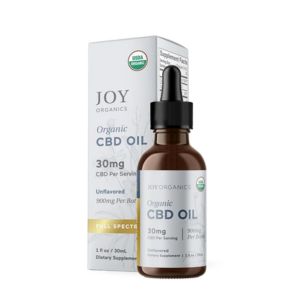
25% Off Coupon: HEALTHCANAL
There are science-backed benefits to whole-plant CBD oil, but sometimes you just want a product that contains CBD and nothing more. That’s where Joy Organics comes in.
- Choose from broad or full-spectrum recipes
- Available in several flavors (and unflavored)
- Free shipping and money-back guarantee
- Somewhat more expensive than others
At Joy Organics, you’ll have no trouble finding the perfect CBD product to suit your needs. Though they do offer full-spectrum options, you’ll find several flavors (including an unflavored formula) for broad-spectrum CBD oils completely free from tetrahydrocannabinol.
All of their CBD oils are available in different concentrations up to 1,350mg and all are lab-tested and backed by a money-back guarantee. Order now for free shipping!
Medterra
High-quality CBD is worth its weight in gold but you won’t have to pay a fortune with Medterra. Not only are their CBD oils affordable, but they come in high concentrations.
- Wide variety of product choices available
- Made in the USA, organically grown
- Concentrations up to 3,000mg
- Some may be confused about full vs broad spectrum
Many people react differently to CBD, and your body may need a higher dose than someone else to achieve the desired health benefit. If you’re looking for a highly concentrated CBD oil that won’t cost an arm and a leg, try Medterra.
Choose from a variety of concentrations (including 3,000mg), all made with organically grown, GMO-free hemp made in the USA. To give your immune system a jump, you may even want to try Medterra CBD Immune Boost drops fortified with elderberry, echinacea, ginger, and vitamin D.
PlusCBD
When you first start using CBD, you may struggle to use traditional CBD oil tinctures. With Plus CBD you can start with a simple spray and then graduate to using oil at higher doses.
- Several flavors and concentrations are available
- Available in spray form for easy administration
- Save 20% with automatic monthly deliveries
- Somewhat pricey compared to others
Using CBD for its health benefits is a no-brainer, but it can take time to get used to administering it. If you’re not sure how to use CBD oil, why not start with a spray from Plus CBD?
This company offers high-quality flavored and unflavored oils and sprays in several concentrations, all made with full-spectrum hemp extract. Save with 20% off and free shipping when you start an automatic monthly order.
CBDPure
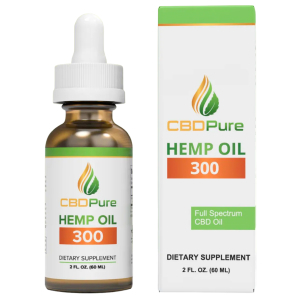
15% Off Coupon: HEALTHCANAL
It’s important to be careful with what you put in your body and no one knows that better than CBD Pure. Their CBD oils are certified organic with no additives or contaminants.
- Made with certified organic USA-grown hemp
- Save more when you buy multiple bottles
- Backed by 90-day money-back guarantee
- Limited product variety
When you want the best nature has to offer, you can count on CBD Pure. This company uses GMO-free certified organic CBD from hemp grown in Colorado and Washington. Their oils are free from additives and contaminants, plus they are third-party lab tested for safety. Choose from three concentrations – 300mg, 600mg, or 1,000mg – and receive a multi-bottle discount along with a 9-day money-back guarantee.
What Is Skin Cancer?
The National Cancer Institute describes cancer as a collection of related diseases in which the body’s cells begin to divide abnormally and spread into the surrounding tissue. The human body is made up of trillions of cells which are constantly growing and dividing to form new cells as needed. When cells become damaged or old, they die off so new ones can take their place. Cancer changes this process.
When cancer develops, the normal process of cell division and cell death breaks down. Abnormal cells form, old or damaged cells survive when they shouldn’t, and new cells form unnecessarily. Those extra cells can divide rapidly, forming a growth called a tumor.
The primary difference between normal and cancer cells is the rate at which they grow and divide. Cancer cells are less specialized than normal cells, but they can still influence the healthy cells, molecules, and blood vessels in the surrounding area – the tumor microenvironment.[2]
Skin cancer is simply the abnormal growth of skin cells. It happens most often on skin that has been exposed to the sun, but can also occur in other areas. There are three main types.
Types Of Skin Cancer
Generally speaking, skin cancers are divided into two categories: melanoma and non-melanoma skin cancers. Skin cancer tends to start in the outer layer of the skin where it is visible to the naked eye, making early diagnosis a little easier than other forms of cancer.
Here’s an overview of the most common forms of skin cancer:
- Basal cell carcinoma
- Squamous cell carcinoma
- Merkel cell cancer
- Melanoma
The first two of these are less aggressive than the final two. Basal cells are round cells found in the lower epidermis of the skin – these are the cells involved in 80% of skin cancer cases. Squamous cells are flat, scale-like cells that make up most of the epidermis. About 20% of skin cancers develop from squamous cells, particularly in areas of high sun exposure. Basal cell and squamous cell carcinoma are sometimes referred to as keratinocyte carcinomas[3] or non-melanoma skin cancer.
Merkel cell cancer is a rare, highly aggressive, and fast-growing form of skin cancer. It develops in the hormone-producing cells found just beneath the skin, typically on the head and neck area. It is also known as neuroendocrine carcinoma of the skin.
Melanoma affects the pigment-producing cells in the skin called melanocytes and it is the most serious form of skin cancer. Other rare skin cancers include lymphomas, Karposi sarcoma, and skin adnexal tumors.
How Is Skin Cancer Usually Treated?
Skin cancer is the most common form of cancer in the United States and it has become a major public health concern. As such, it has been the subject of a great deal of research which has led to the development of numerous modern treatments. Even with these modern developments, however, the average cost of treatment for cancer patients exceeds $8 billion each year.[4]
Here are some of the most common options for treatment:
- Excisional surgery
- Mohs surgery
- Cryotherapy
- Curettage
- Radiation therapy
- Chemotherapy
- Photodynamic therapy
Though many modern cancer treatments are effective, they can be expensive and, in some cases, dangerous. The authors of a 2018 review published in the International Journal of Molecular Sciences suggest phytochemicals may be the next breakthrough[5] in safe, effective, and affordable cancer therapies. Phytochemicals are simply biologically active compounds derived from plants.
Many phytochemicals exert anticarcinogenic effects due to their anti-inflammatory, antioxidant, anti-angiogenic, and anti-proliferative properties. Cannabinoids are a group of phytochemicals that have shown promising results for cancer patients.
Cannabis Skin Cancer Treatment
Cannabinoids are naturally occurring compounds derived from the cannabis plant. Cannabidiol (CBD)[6] is the cannabinoid most highly concentrated in the Cannabis sativa (hemp) variety while tetrahydrocannabinol (THC) is more highly concentrated in Cannabis indica (marijuana). Both have shown therapeutic potential for cancer.
The thing to remember about cannabis, particularly in the treatment of cancer, is that there is a big difference between CBD and THC. While cannabidiol is non-psychoactive, THC can produce a high along with unwanted effects like euphoria or sedation. CBD is legal in the United States[7] as long as it contains less than 0.3% tetrahydrocannabinol but you may need a prescription if you want to try medical cannabis, depending on what state you live in.
When it comes to cannabis for skin cancer, there are many types to consider. Medical cannabis (or medical marijuana) is typically inhaled, though you can find edible forms as well. cannabidiol comes in oil tinctures, topical products, edibles, and vape juice. The form you choose may depend on the symptoms you’re trying to address. CBD oil is always a good place to start because you can control the dosage and scale it as needed.
What Does CBD Oil Do?
Cannabis has long been used as a natural remedy for various conditions but because it has long been restricted, clinical research is limited. Over the past decade, however, numerous studies have led to important discoveries about cannabinoids like CBD and THC as well as their impact on the human body.
The therapeutic effects of cannabinoids have largely been attributed to their impact on the endocannabinoid system (ECS) in the human body. The endocannabinoid system is a complex cell signaling system that plays a role in regulating important bodily functions and in maintaining biological homeostasis. By acting on various cannabinoid receptors in the ECS, cannabidiol offers anti-inflammatory, antioxidant, analgesic,[8] and anxiolytic[9] benefits.
Though more research is needed, some studies have shown cannabis oil to provide various anticancer benefits. According to a review of CBD as an anticancer drug,[10] it has been shown to “successfully induce cell death, inhibit cell migration and invasion in vitro, decrease tumor size, vascularization, growth, and weight, and increase survival and induce tumor regression.”
This particular quote relates to the use of cannabidiol for glioma, a type of malignant brain cancer, but similar effects have been observed in cases of lung, colorectal, prostate cancer, and lymphoma. Though the effects of CBD on other types of cancer are less well-researched, smaller studies have shown promising results.
How To Use CBD Oil For Skin Cancer
Cannabis oil is by no means a proven treatment for any form of cancer, but numerous studies have demonstrated its potential anti-cancer benefits. In a 2018 review[11] published in the International Journal of Molecular Sciences, CBD was shown to decelerate tumor progression in breast cancer patients. In one 2015 study, treatment with THC resulted in autophagy-dependent apoptosis in melanoma. Besides, it helped encourage the death of melanoma cells.
Clinical trials and scientific studies regarding the use of CBD oil for skin cancer are limited. Regardless of any benefit in treating skin cancer itself, cancer patients may benefit from the anti-inflammatory and pain-relieving benefits of cannabidiol oil.
When shopping for CBD oil, it’s important to search for a company that uses high-quality hemp-derived cannabis oil. A third-party lab should test CBD products for purity and potency, and you should check for added ingredients as well. There is no standard dosage for cannabidiol products, so follow your doctor’s advice. Dosing guidelines vary depending on the concentration of the product you choose, so refer to the instructions on the package as well.
Side Effects Of Cancer Treatment
Though CBD may not be a cure for skin cancer, it may help with pain and inflammation. Studies also show that CBD may help relieve side effects related to conventional treatment. In one study,[12] patients taking CBD experienced a reduction in chemotherapy-induced nausea and vomiting. In another, a THC: CBD extract helped relieve intractable cancer-related pain.[13] Before taking CBD, it’s important to talk to your doctor. Though cannabidiol is generally recognized as safe, it has the potential to interact with certain medications. Talk to your doctor about the right starting dose and follow up as you start noticing the effects of the treatment so you can make adjustments as needed. It may take some trial and error to find the right dose.
Be aware that CBD has the potential to cause side effects[14] of its own as
Frequently Asked Questions
There is no evidence to suggest CBD can cure skin cancer, but it may help alleviate some of the pain and inflammation related to the condition itself or your treatments for it.
There is no standard dosage for CBD oil but dosages up to 1,500mg per day[15] have been well tolerated. Talk to your doctor to determine a starting dosage then increase your dosage gradually, if needed, until you reach the desired effect.
Yes, CBD oil is legal as long as it contains less than 0.3% tetrahydrocannabinol. If you want to try medical marijuana, you may need a prescription and/or a medical marijuana card, depending on what state you live in.
+ 15 sources
Health Canal avoids using tertiary references. We have strict sourcing guidelines and rely on peer-reviewed studies, academic researches from medical associations and institutions. To ensure the accuracy of articles in Health Canal, you can read more about the editorial process here
- Antony J Mersiades, Annette Tognela, Paul S Haber, Martin Stockler, Nicholas Lintzeris, John Simes, Iain McGregor, Ian Olver, David J Allsop, Craig Gedye, Adrienne C Kirby, Rachael L Morton, Peter Fox, Stephen Clarke, Karen Briscoe, Morteza Aghmashe. (2018). Oral cannabinoid-rich THC/CBD cannabis extract for secondary prevention of chemotherapy-induced nausea and vomiting: a study protocol for a pilot and definitive randomised double-blind placebo-controlled trial (CannabisCINV). Available from: https://www.ncbi.nlm.nih.gov/pmc/articles/PMC6144412/
- J.-J. Wang, K.-F. Lei, F. Han. (2018). Tumor microenvironment: recent advances in various cancer treatments. Available from:https://www.europeanreview.org/article/15270
- Priyadharsini Nagarajan, Maryam M. Asgari, Adele C. Green, Samantha M. Guhan, Sarah T. Arron, Charlotte M. Proby, Dana E. Rollison, Catherine A. Harwood, and Amanda Ewart Toland. (2018). Keratinocyte Carcinomas: Current concepts and future research priorities. Available from: https://www.ncbi.nlm.nih.gov/pmc/articles/PMC6467785/
- Gery P. Guy, Steven R. Machlin, Donatus U. Ekwueme, and K. Robin Yabroff. (2016). Prevalence and Costs of Skin Cancer Treatment in the U.S.2002–2006 and 2007–2011. Available from: https://www.ncbi.nlm.nih.gov/pmc/articles/PMC4603424/
- Chau Yee Ng, Hsi Yen, Hui-Yi Hsiao, and Shih-Chi Su. (2018). Phytochemicals in Skin Cancer Prevention and Treatment: An Updated Review. Available from: https://www.ncbi.nlm.nih.gov/pmc/articles/PMC5979545/
- Harrison J.Van, Dolah SaBrent, A.Bauer, F.Mauck. (2019). Clinicians’ Guide to Cannabidiol and Hemp Oil. Available from: https://www.sciencedirect.com/science/article/pii/S0025619619300072
- US Food and Drugs. (2020). FDA Regulation of Cannabis and Cannabis-Derived Products, Including Cannabidiol (CBD). Available from: https://www.fda.gov/news-events/public-health-focus/fda-regulation-cannabis-and-cannabis-derived-products-including-cannabidiol-cbd#legaltosell
- Tine van de Donk, Marieke Niesters, Mikael A. Kowal, Erik Olofsen, Albert Dahan. (2019). An experimental randomized study on the analgesic effects of pharmaceutical-grade cannabis in chronic pain patients with fibromyalgia. Available from: https://www.ncbi.nlm.nih.gov/pmc/articles/PMC6430597/
- Esther M. Blessing, Maria M. Steenkamp, Jorge Manzanares, Charles R. Marmar. (2015). Cannabidiol as a Potential Treatment for Anxiety Disorders. Available from: https://www.ncbi.nlm.nih.gov/pmc/articles/PMC4604171/
- Emily S. Seltzer. (2020). Cannabidiol (CBD) as a Promising Anti-Cancer Drug. Available from: https://www.mdpi.com/2072-6694/12/11/3203/htm
- Terézia Kisková, Felicitas Mungenast, Mária Suváková, Walter Jäger, Theresia Thalhammer. (2019). Future Aspects for Cannabinoids in Breast Cancer Therapy. Available from: https://www.ncbi.nlm.nih.gov/pmc/articles/PMC6479799/
- Marta Duran, Eulàlia Pérez, Sergio Abanades, Xavier Vidal, Cristina Saura, Margarita Majem, Edurne Arriola, Manel Rabanal, Antoni Pastor, Magí Farré, Neus Rams, Joan-Ramon Laporte, and Dolors Capellà. (2010). Preliminary efficacy and safety of an oromucosal standardized cannabis extract in chemotherapy-induced nausea and vomiting. Available from: https://www.ncbi.nlm.nih.gov/pmc/articles/PMC2997305/
- Jeremy R Johnson, Mary Burnell-Nugent, Dominique Lossignol, Elena Doina Ganae-Motan, Richard Potts, Marie T Fallon. (2009). Multicenter, double-blind, randomized, placebo-controlled, parallel-group study of the efficacy, safety, and tolerability of THC:CBD extract and THC extract in patients with intractable cancer-related pain. Available from: https://pubmed.ncbi.nlm.nih.gov/19896326/
- Kerstin Iffland and Franjo Grotenhermen. (2017). An Update on Safety and Side Effects of Cannabidiol: A Review of Clinical Data and Relevant Animal Studies. Available from: https://www.ncbi.nlm.nih.gov/pmc/articles/PMC5569602/
- Mateus Machado Bergamaschi , Regina Helena Costa Queiroz, Antonio Waldo Zuardi, José Alexandre S Crippa. (2011). Safety and side effects of cannabidiol, a Cannabis sativa constituent. Available from: https://pubmed.ncbi.nlm.nih.gov/22129319/

